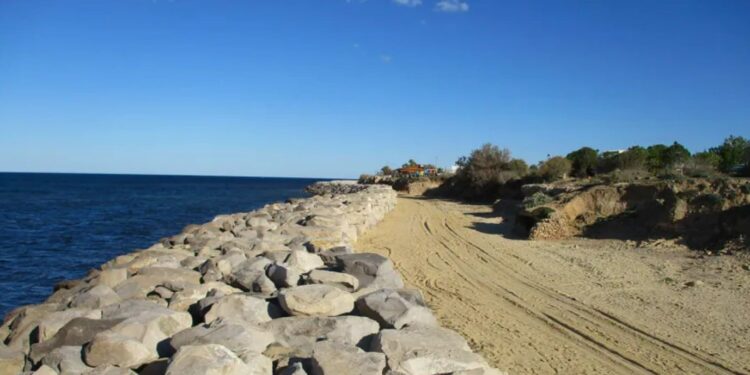Tunisia faces a silent but worrying environmental crisis: marine erosion. According to the World Bank 2023 report, the country is among the most affected in the world by this phenomenon.
The environmental expert Mehdi Laâbdeli recall that 260 km of Tunisian coast, out of a total of 670 km, are today seriously affected. “The situation becomes critical, because the advance of the sea jeopardizes ecosystems, infrastructure and urbanized areas,” he said in a declaration to the journalist Kawther Laaroubi.
Weakened beaches and polluted waters
In addition to erosion, water quality is problematic. A campaign carried out in June 2025 by the Ministry of Health on 539 control points revealed that only 29 % displayed excellent quality. In 71 % of cases, seawater does not fully meet international standards.
For the specialist in climate change Amel Jeradthe causes of this situation are multiple: sea level,, uncontrolled urbanization And chronic pollution.
Riposte attempts
Faced with this emergency, the coastal protection and development agency is focusing on the sand recharging to restore threatened beaches. Its interim manager, Mehdi Belhajsaid the agency recently intervened in Port El Kantaoui (Sousse) for the rehabilitation of 3 km of coastline.
“The choice of sands is delicate because it must be compatible with the targeted beach. This process requires extensive studies and a lot of time, “he said.
Between the retreat of the coast, marine pollution and climatic threat, Tunisia finds itself faced with a Triple environmental challenge. Experts insist on the need to adopt coherent public policies and sustainable strategies for safeguard coastal heritagevital for the economy, tourism and biodiversity.








